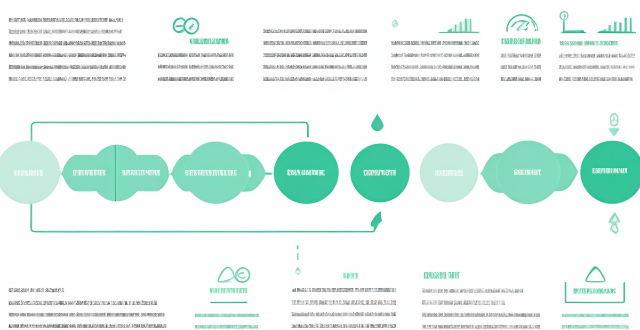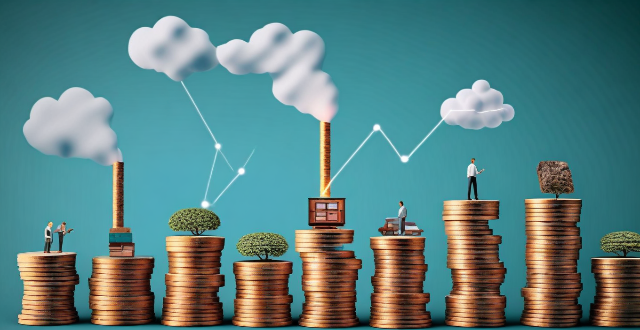Return Investor

How do I negotiate terms with an investor without giving away too much control ?
Negotiating terms with an investor requires careful consideration and planning. Here are some tips on how to negotiate terms with an investor without giving away too much control: 1. Understand your value proposition: Before entering into any negotiations, it's essential to understand the value of your business. This includes knowing your company's strengths, weaknesses, opportunities, and threats (SWOT analysis). 2. Set clear expectations: It's crucial to set clear expectations from the outset of the negotiation process. This means being upfront about what you're willing to give up and what you're not. 3. Focus on long-term goals: When negotiating with an investor, keep your long-term goals in mind. Consider how the terms of the investment will impact your business in the future and whether they align with your long-term vision. 4. Be willing to walk away: If an investor is asking for too much control or making unreasonable demands, don't be afraid to walk away from the deal. Remember that there are other investors out there who may be more willing to work with you on terms that suit both parties. 5. Seek legal advice: Before finalizing any agreements with an investor, seek legal advice. A lawyer can help you understand the implications of the terms being proposed and ensure that your interests are protected.

How are climate change and investor responsibility interconnected ?
Climate change and investor responsibility are interconnected in several ways. As investors, it is important to consider the impact of our investments on the environment and society as a whole. Here are some key points that highlight the interconnection between climate change and investor responsibility: 1. Environmental Impact of Investments 2. Risk Management 3. ESG Criteria 4. Regulatory Changes 5. Shareholder Activism 6. Reputational Risk

What is the average return on investment for private equity ?
Private equity (PE) investments can offer attractive returns, but these are influenced by several factors. The success of the companies in which PE firms invest, market conditions, investment strategy, and timing all play a role. Historically, PE has delivered average annualized returns of 12-15%, though these can be volatile. It's important for investors to understand the J-curve effect, fees, and the benefits of diversification when considering PE investments.

How often do I need to file my personal income tax return ?
Filing personal income tax returns is a crucial financial responsibility for individuals. The frequency of filing depends on various factors such as your residency, employment status, and income level. In this article, we will discuss the different scenarios that determine how often you need to file your personal income tax return. Personal income tax returns are filed annually in most countries. However, there are certain situations where you may need to file more frequently or less frequently. Your residency status plays a significant role in determining how often you need to file your personal income tax return. If you are a resident of a country, you are required to file your tax return annually, regardless of your employment status or income level. If you are employed and receive a regular salary, your employer is responsible for withholding taxes from your paycheck and remitting them to the government. In this case, you are still required to file your personal income tax return annually to report your total income and ensure that the correct amount of taxes has been withheld. The frequency of filing your personal income tax return also depends on your income level. If you have a low income and do not exceed the minimum threshold set by the government, you may not be required to file a tax return. However, it is always advisable to check with the tax authorities to confirm if you are exempt from filing. Self-employed individuals who earn an income from their business activities are required to file their personal income tax return annually. This is because self-employed individuals are responsible for paying their own taxes and reporting their income to the government. Freelance workers who earn an income from providing services to clients are also required to file their personal income tax return annually. This ensures that they report their earnings accurately and pay the appropriate taxes. If you own rental properties and earn rental income, you are required to file your personal income tax return annually. This is because rental income is considered part of your overall income and must be reported to the government. Retirees who receive pensions or other forms of retirement income are generally required to file their personal income tax return annually. However, if their income falls below the minimum threshold set by the government, they may be exempt from filing. In conclusion, the frequency of filing your personal income tax return depends on various factors such as your residency status, employment status, and income level. It is important to understand these factors and consult with the tax authorities to ensure that you comply with the requirements for filing your tax return. By doing so, you can avoid penalties and ensure that you pay the correct amount of taxes.

Which financial product offers the highest return on investment ?
Investing in financial products is a popular way to grow wealth, but with many options, it's hard to determine which offers the highest return on investment (ROI). This article explores popular financial products and their potential returns. The stock market offers high potential returns but also significant risks. Real estate can provide rental income and property appreciation, but comes with its own set of risks. Mutual funds offer professional management and diversification, but fees and expenses can impact returns. Cryptocurrencies have gained popularity as an alternative investment option, but are highly volatile and speculative, making them unsuitable for most investors seeking stable returns. Determining which financial product offers the highest return on investment depends on various factors, including risk tolerance, investment goals, and market conditions. Diversification across different asset classes and investment vehicles can help minimize risks and maximize returns over time.

What is the return policy for items purchased during a limited-time promotion ?
When you purchase items during a limited-time promotion, it is important to understand the return policy associated with those purchases. The return policy for items purchased during a limited-time promotion may vary depending on the retailer or brand. Most retailers have a specified time limit for returns, which is usually stated in their return policy. The item must be returned in its original condition, including any packaging and accessories that were included with the purchase. Refunds are typically issued using the same method of payment as the original purchase. There are some exceptions to the general return policy for items purchased during a limited-time promotion, such as final sale items, customized items, and shipping and handling fees. To ensure a smooth return process, keep receipts and packaging, check the return policy before purchasing, and contact customer service if unsure.

Is it necessary to have a return ticket for a tourist visa application ?
The text discusses the importance of a return ticket for a tourist visa application. It states that a return ticket is necessary to ensure the traveler has plans to return to their home country after the completion of their trip. Other documents required for a tourist visa application include a valid passport, hotel reservation, travel itinerary, financial evidence, invitation letter, travel insurance, application form, and photo. The return ticket is considered important as it shows the embassy or consulate that the traveler plans to return to their home country after their trip, reduces the chances of overstaying their visa period, assures the authorities of departure arrangements, and maintains the integrity of visa policies. If a traveler cannot provide a return ticket at the time of application, there is a high probability of visa rejection. However, an onward journey ticket can be provided as an alternative. Alternatives to a return ticket include one-way tickets, open-ended tickets, refundable tickets, and onward journey tickets. To ensure the availability of a return ticket, travelers should book in advance, choose flexible dates, opt for refundable tickets, and check with airlines about their policies. Not providing a return ticket can lead to visa rejection, blacklisting, impact future applications, and financial losses. Travel agents can assist in getting a return ticket or suggesting alternatives but may charge additional fees.

Can I return or exchange items purchased through团购优惠 (tuan gou youhui) ?
This text discusses the concept of Tuan Gou Youhui, a popular online shopping method in China that allows customers to purchase products at discounted rates in large group sizes. It then explores the return and exchange policies for items purchased through this method, noting that these policies vary depending on the specific merchant and product but most merchants offer some form of return or exchange policy. The text provides general guidelines for understanding return and exchange policies and steps to return or exchange an item, emphasizing the importance of contacting customer service, providing necessary information, packaging the product carefully, shipping it according to instructions, waiting for refund or exchange, and confirming receipt of refund or exchanged product. Finally, it concludes that by understanding these policies and following appropriate steps, customers can ensure a smooth and hassle-free experience when shopping through Tuan Gou Youhui.

What is the difference between angel investors and venture capitalists ?
The main differences between angel investors and venture capitalists are: - Investment Amount: Angel investors typically invest smaller amounts of money, while venture capitalists invest larger sums. - Investment Stage: Angel investors tend to invest in early-stage companies, while venture capitalists invest in later-stage companies that are further along in their development. - Risk Tolerance: Angel investors are generally willing to take on higher levels of risk than venture capitalists. - Involvement Level: Angel investors tend to be more hands-on and involved in the companies they invest in, while venture capitalists typically have less direct involvement.

How do bond yields affect my investment returns ?
Bond yields significantly impact investment returns, particularly for bond and bond-related security investors. Yields represent the interest rate paid by bond issuers to holders and are crucial for expected returns. Higher yields generally result in increased interest income but can also cause price volatility. Inflation affects real returns, and lower yields may increase opportunity costs. Strategies like diversification, duration management, active management, and staying informed can help maximize returns amidst changing bond yield environments.

How do I pitch my business idea to potential investors ?
Pitching a business idea to potential investors is crucial for securing funding. It involves careful preparation, clear communication, and a compelling narrative. Research the investor's background, craft a story that defines the problem and solution, and create a pitch deck with visuals. Practice your pitch, connect with the investor, and be ready for questions. Follow up with a thank-you note and maintain contact.

What are some examples of sustainable investments ?
Sustainable investments are becoming increasingly popular as investors seek to generate financial returns while also contributing to environmental and social causes. Examples of sustainable investments include green bonds, sustaple stocks, impact investing, and sustainable real estate. These investments offer benefits such as reducing carbon emissions, promoting renewable energy sources, supporting fair labor practices, and potentially earning competitive returns over time. By choosing to invest sustainably, investors can play an active role in protecting the environment, creating a more equitable society, and achieving financial success.

Are there any risks associated with investing in green bonds that investors should be aware of ?
Investing in green bonds comes with certain risks that investors should be aware of, including credit risk, interest rate risk, inflation risk, liquidity risk, reputational risk, legal and regulatory risk, project risk, climate risk, and ESG (environmental, social, and governance) risk. These risks can impact the returns on investment and the overall success of the investment strategy. It is important to carefully evaluate each green bond investment opportunity and consult with financial advisors before making any investment decisions.

What are some red flags that might discourage investors from funding my startup ?
Investors look for signs that a startup may not be a good investment. Here are some common red flags: 1. **Lack of a Clear Business Model**: Undefined revenue streams, no competitive advantage, ignoring market research, and underestimating costs can discourage investors. 2. **Poor Financial Management**: Lack of financial projections, inadequate funding, high burn rate, and unrealistic valuation raise concerns. 3. **Weak Team Dynamics**: A lack of diversity, inexperienced leadership, high turnover rates, and poor communication within the team or with investors are problematic. 4. **Legal and Ethical Concerns**: Intellectual property disputes, regulatory non-compliance, and ethical issues can deter investors. 5. **Product and Technology Issues**: Technological limitations, scalability problems, and a lack of innovation are major concerns. 6. **Market and Sales Challenges**: A small addressable market, saturated markets, and sales execution risks can make investors hesitant.

What is the future of cryptocurrency investments ?
The future of cryptocurrency investments is uncertain and depends on various factors such as regulatory changes, technological advancements, market trends, and investor sentiment. Regulatory changes could either limit the growth of the industry or attract more investors. Technological advancements could lead to increased adoption or cause a decline in prices. Market trends like acceptance by companies and institutional investors could drive up demand and prices. Investor sentiment plays a crucial role in determining the future of cryptocurrency investments. It is important to do research and consult with a financial advisor before making any investment decisions.

What is the process of returning a product in global shopping ?
### Summary: Returning a product purchased through global shopping involves several steps, including checking the return policy, initiating the return process, preparing and shipping the item back, monitoring your refund, documenting the process, and considering international factors such as customs and currency exchange rates. It's important to stay organized, use trackable shipping methods, and keep records of all communications with the seller to ensure a smooth and effective return.

What is the future outlook for gold investment ?
The future outlook for gold investment is influenced by various factors such as economic conditions, monetary policy, supply and demand dynamics, and investor sentiment. Economic uncertainty can drive up the demand for gold as a safe-haven asset, while periods of growth may decrease its value. Central banks' interest rate decisions and money supply changes can also impact gold prices. Supply and demand dynamics, including mining production and jewelry demand, play a role in determining gold availability and price. Finally, investor sentiment towards gold can be shaped by market trends, investment strategies, and overall risk appetite. By monitoring these key factors, investors can make informed decisions about the viability of gold as a portfolio addition in the coming years.

How does the pandemic affect the performance of tech stocks ?
The COVID-19 pandemic has significantly impacted tech stock performance through increased demand for technology, supply chain disruptions, changes in investor sentiment, and government stimulus and regulation. Remote work and learning have boosted tech sales, while e-commerce growth has further driven revenue. However, production delays and component shortages pose challenges. Investor behavior varies, with some seeking safety in tech stocks and others avoiding risk. Government support and regulatory changes also influence the sector's performance. The long-term effects on tech stocks remain uncertain.

How can green bonds help finance climate-friendly projects ?
Green bonds are financial instruments that raise capital specifically for climate and environmental projects. They offer increased funding opportunities by attracting a diverse investor base interested in sustainable investing, aligning with ESG criteria, and providing attractive returns. Transparency and accountability are ensured through rigorous certification processes, third-party reviews, and reporting requirements. Green bonds also catalyze climate action by incentivizing sustainable practices and supporting innovation in clean technology. Furthermore, they encourage wider market participation through investor education, public awareness campaigns, policy support, and international collaboration. Overall, green bonds are crucial for financing climate-friendly projects and accelerating the transition to a more sustainable economy.

What is the risk involved in investing in bonds ?
Investing in bonds carries risks such as interest rate, credit, inflation, liquidity, reinvestment, call, prepayment, foreign currency, and political/regulatory changes. Understanding and managing these risks is crucial for protecting your investment. Diversifying your portfolio across different types of bonds and monitoring market conditions can help mitigate these risks.

What is the role of a broker in the stock market ?
Brokers play a key role in the stock market, acting as intermediaries between investors and financial markets. They facilitate trades, provide market information, offer investment advice, manage accounts, and execute complex trades. Their expertise helps investors make informed decisions and manage their portfolios effectively.

How do private equity firms exit their investments ?
Private equity firms employ various exit strategies to realize the value created during their investments, including IPOs, trade sales, secondary sales, recapitalizations, management buyouts, and write-offs. Each strategy has its own advantages and disadvantages, and PE firms must carefully consider which option will maximize their return on investment while minimizing risks.

Are the items in a sample sale returnable or exchangeable ?
Sample sales can have various return and exchange policies. Some items are final sale, while others may have limited return periods or require the item to be in original condition for returns. Some retailers offer only store credit instead of refunds, and others allow exchanges but no refunds. It's important to know the specific policies before purchasing to avoid disappointment later on.

How do I know if an online shopping discount is actually a good deal ?
To determine if an online shopping discount is actually a good deal, consider the following: 1. **Check the Original Price**: Ensure the discount isn't based on an inflated original price by comparing it with other websites or checking the price history. 2. **Look for Reviews and Ratings**: High ratings and positive reviews can indicate that the discounted price is indeed a good deal. 3. **Compare with Similar Products**: Compare the discounted item with similar products on the market to gauge if the price is genuinely lower than usual. 4. **Consider the Return Policy**: Be aware of any strict return policies for discounted items which could potentially increase costs if you need to return or exchange. 5. **Use Price Tracking Tools**: Utilize websites or browser extensions that track prices over time, alerting you when items reach a certain price point. By employing these strategies, you can make informed decisions about online shopping discounts and avoid being misled by false advertising or artificially high prices.

Can I return a second-hand iPhone if it has issues ?
Purchasing a second-hand iPhone can be an economical option for those who want to own an Apple device without spending the full retail price. However, it's important to consider the implications of buying a pre-owned phone, particularly in terms of its condition and warranty. If you find that your second-hand iPhone has issues, whether they are cosmetic or functional, the question arises: Can you return it? When buying from an individual, there is no formal return policy unless agreed upon during the sale. You may have a short window to check the device and report any major issues. Many stores selling used devices will offer a limited warranty or return period. Be sure to ask about their specific policies before making a purchase. If the iPhone is still under Apple's warranty or you purchased AppleCare+ with it, you might be able to get support directly from Apple for certain issues. This does not usually include returns but covers repairs. Assess the issue by checking if it's a software or hardware problem. Contact the seller and negotiate a solution depending on the issue. Provide evidence like detailed descriptions and photos of the problem to facilitate understanding and negotiation. Seek professional help by visiting an authorized repair center or consulting with Apple if the phone is under warranty. Inspect the phone before buying by testing all functions and checking the appearance for any signs of damage that weren't disclosed by the seller. Purchase from reputable sources like certified pre-owned iPhone retailers who provide guarantees and inspections. Ask for proof of warranty and request documentation showing any remaining manufacturer warranty or additional coverage. While returning a second-hand iPhone with issues can be challenging and depends heavily on the seller's policies and the nature of the problems, taking careful steps during and after the purchase can mitigate risks. Always test the device thoroughly, inquire about warranty information, and maintain open communication with the seller to address any concerns that may arise.

How do interest rates affect bond prices and yields ?
Bond prices and yields are inversely related to interest rates. When interest rates rise, bond prices fall, and vice versa. This is because the yield on a bond is determined by its coupon rate, which is fixed at the time of issuance. Therefore, if interest rates increase after the bond is issued, the yield on the bond will be lower than the current market rate, making it less attractive to investors. Conversely, if interest rates decrease after the bond is issued, the yield on the bond will be higher than the current market rate, making it more attractive to investors. Other factors that affect bond prices and yields include credit risk, inflation expectations, and economic growth. When interest rates rise, bond prices fall, and the yield curve steepens. When interest rates decrease, bond prices rise, and the yield curve flattens. To manage interest rate risk, investors can diversify their portfolio across different types of bonds and maturities, use hedging strategies such as interest rate swaps and futures and options contracts, and engage in active management through market timing and credit analysis.

What is the difference between a bond and a stock ?
Bonds and stocks are two different types of financial instruments that companies use to raise capital. While both are used for funding, they have distinct differences in terms of ownership, returns, risks, and other factors. Here are some key differences between bonds and stocks: - Bonds represent debt and provide regular interest payments with a fixed maturity date, while stocks represent equity and offer potential dividends and capital appreciation without a set maturity date. - When you buy a bond, you are essentially lending money to the issuer (usually a company or government). In return, you receive a bond certificate that represents your loan. You do not own any part of the company; you are simply a creditor. - When you buy a stock, you become a part owner of the company. This means you have a claim on the company's assets and earnings, as well as a say in how the company is run through voting at shareholder meetings. - The primary return from owning a bond comes from interest payments made by the issuer. These payments are usually fixed and paid at regular intervals until the bond matures, at which point the principal amount is repaid. - The return on stocks comes from dividends (if the company chooses to pay them) and capital gains (the increase in the stock price over time). Stock prices can be volatile, so the potential for high returns is greater than with bonds, but so is the risk. - Generally considered less risky than stocks because they offer a fixed rate of return and have priority over stockholders in the event of bankruptcy. However, there is still risk involved, especially if the issuer defaults on its payments. - More risky than bonds because their value fluctuates with market conditions and the performance of the underlying company. If the company does poorly, the stock price may fall significantly, and investors could lose part or all of their investment. - Have a defined maturity date when the principal amount must be repaid by the issuer. This provides a clear timeline for investors. - Do not have a maturity date; they exist as long as the company remains in business. Investors can sell their shares at any time in the open market. - Interest income from bonds is typically taxed as ordinary income. - Long-term capital gains from stock sales may be taxed at a lower rate than ordinary income, depending on the tax laws of the jurisdiction.

Is there a financial case for divesting from high-carbon industries ?
The debate over whether there is a financial case for divesting from high-carbon industries is ongoing, with proponents arguing that it can improve risk management, long-term returns, and alignment with sustainability goals, while opponents contend that it can lead to lost opportunities, lack of evidence for financial benefits, and short-term costs. The decision to divest ultimately depends on individual investor preferences and goals.

How can investors influence corporate behavior towards reducing carbon emissions ?
Investors can influence corporate behavior towards reducing carbon emissions by using their financial power and influence. They can do this through shareholder engagement, collaborative engagement, financial incentives, public advocacy, and strategic dialogue. By employing these strategies, investors not only promote corporate responsibility but also pave the way for a more sustainable future.

What is the return on investment for companies engaging in sports sponsorship ?
Sports sponsorship is a popular marketing strategy for companies to increase brand awareness, improve customer loyalty, and drive sales. However, it is important to measure the ROI of sports sponsorship activities to ensure desired outcomes are achieved. Factors affecting ROI include brand awareness, customer loyalty, and sales growth. Tips for maximizing ROI include setting clear objectives, choosing the right partnerships, leveraging digital marketing channels, and tracking results.